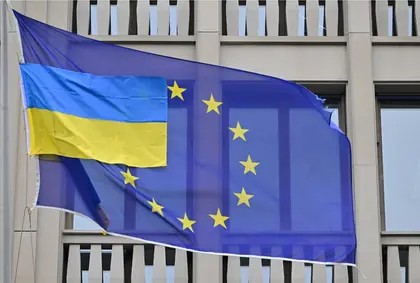On Nov. 8, the European Commission is set to deliver its report on how well Ukraine has implemented reforms that would open the door to EU membership talks.
The official date of the European Commission report had been expected in October, but as it turns out, Nov. 8 will be the date. Then, based on that report, a Dec. 14-15 summit of EU leaders will decide whether to launch formal EU membership talks with Ukraine, Reuters reported Tuesday, citing three officials.
JOIN US ON TELEGRAM
Follow our coverage of the war on the @Kyivpost_official.
While it’s not known for sure, Ukraine is expected to receive a positive recommendation.
“I expect that in general, there will be a decision that we have sufficiently fulfilled the requirements,” Deputy Speaker of the Parliament Oleksandr Kornienko told Kyiv Post in an interview in September.
On Oct. 17, Ukraine’s parliament, the Verkhovna Rada, passed a law combating money laundering – thought to be one of the final steps it needed to take.
In its quest to join the EU, Kyiv has seemingly waged war against corruption. Nearly every week there are announcements of new legislation, investigations, arrests, or firings in Kyiv’s quest to weed out corruption.
The week before passing its law combating money laundering, two senior defense ministry officials were detained on suspicion of embezzling money. And the week before that, the mayor of Sumy was arrested for allegedly “imposing tribute” on a local garbage removal company.

‘We Are Blocking Propagandists’ – Zelensky Imposes Sanctions on Pro-Russian Politicians
“There are no more untouchables in this country,” Supreme Court Chairman Stanislav Kravchenko told Kyiv Post in an interview at the beginning of September.
Kravchenko himself was the replacement for the former Supreme Court chairman – who had been stripped of his chairmanship due to suspicions of bribery.
That said, Hungary might seek additional conditions related to fighting graft and the rights of minorities.
An Oct. 9 assessment by the Venice Commission, a Council of Europe advisory board, said that Ukraine’s latest amendments to the law on national minorities were an improvement, but that more needed doing.
And, at various points, Budapest has put up roadblocks to Kyiv’s EU aspirations.
Despite Hungary’s being a member of EU, its prime minister, Viktor Orban, has maintained warm ties with President Vladimir Putin’s Russia, even calling its’ invasion of Ukraine by the term preferred by Putin – a “military operation.”
A high price
Ukraine’s long-standing desire to join the EU has come at great cost.
On November 21, 2013, the protests that would trigger the Euromaidan Revolution came about when then-president, Viktor Yanukovich, chose not to sign an agreement that would have integrated Ukraine more closely with the EU.
Dozens would die and thousands would be injured – and with Ukraine’s government in disarray, Russia would invade Crimea and sponsor a war in the Donbas – which by 2019, long before Russia’s full-scale invasion, the UN found had led to the deaths of some 13,000 people.
On Feb. 19, 2019, then-President Petro Poroshenko signed a constitutional amendment committing Ukraine to submit a request for membership to the EU no later than 2023.
It was on Feb. 28, 2022, just four days after Russia’s full-scale invasion of Ukraine, that Ukrainian President Volodymyr Zelensky submitted that request.
In a fast-tracked application process, on June 23, 2022, the EU awarded Ukraine “candidate status.”
Although even the start of formal membership talks doesn’t mean Ukraine would join the EU tomorrow – something which many optimistically hope will happen by 2030 – Matti Maasikas, EU’s ambassador to Ukraine European Truth in a September interview that negotiations would put Ukraine on a more even footing with its EU partners.
Meanwhile, European officials, such as European Parliament President Roberta Metsola have said that some steps can already be taken to begin integrating Ukraine and that the EU must begin implementing changes to welcome Ukraine.
You can also highlight the text and press Ctrl + Enter










